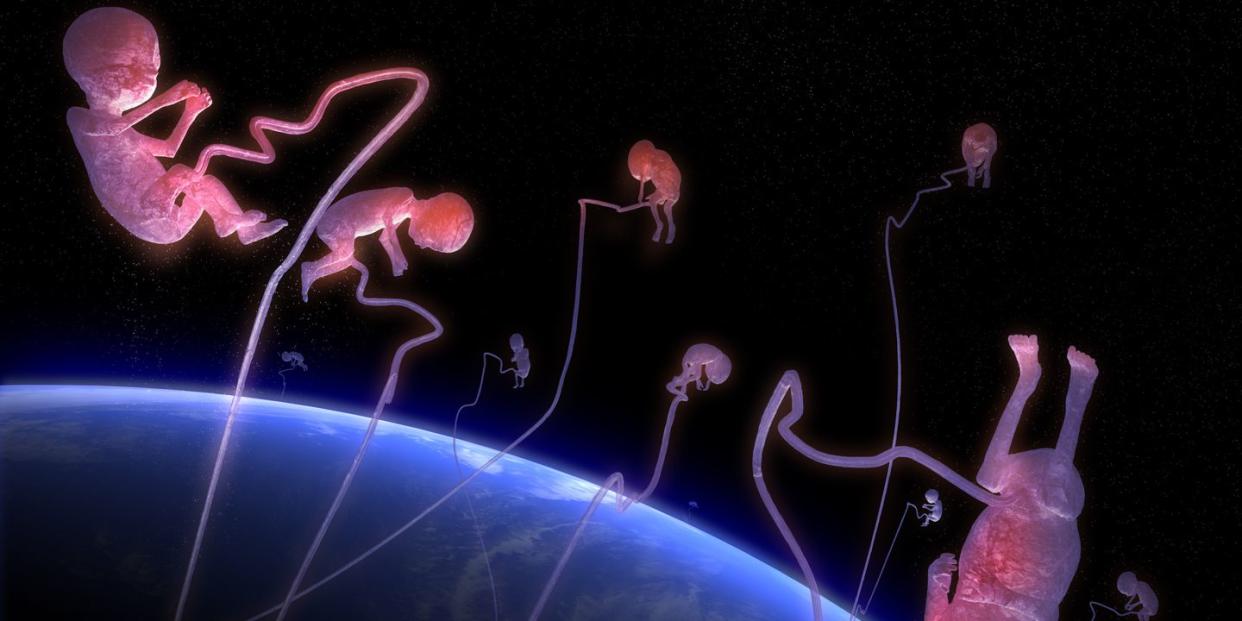This Guy Is Trying to Make the First Baby in Space. It Just Might Work.

SpaceBorn United wants to first conceive animals in space before moving onto humans.
Offering up IVF procedures in a bio-satellite is a major goal for SpaceBorn founder Egbert Edelbroek.
The fertilized egg would need to return to Earth for development.
There’s a group out there that calls itself Asgardia, the First Space Nation. But to populate nations, you need, well, a population. And now, the 1.1 million people who are signed up to “build a new home for humanity in space” are working on their first major mission: actually conceiving humans in space.
Asgardia parliament member Egbert Edelbroek leads a company called SpaceBorn United, which aims to send test flights into low-Earth orbit with a “space-embryo-incubator” that will use IVF to fertilize an egg, thus ensuring space conception. Once fertilized, the egg would return to Earth for development.
Edelbroek says the prototype is in full development for an initial test flight. “Our goal,” he says in a news release, “to enable safe embryo development in space, starts with testing the prototype in space with mouse sperm and oocytes.”
A series of missions in the coming years will enable research on partial gravity effects on embryo development to help SpaceBorn United “move toward the ultimate goal of human reproduction and childbirth in space.”
The ultimate goal of Edelbroek—and Asgardia—is for the entire process (sex to pregnancy to birth) to take place in space.
In the initial plan, a payload in a “bio-satellite” will head to space with male and female reproduction cells. Using an automatic system, the embryos are impregnated and start developing in an artificial, Earth-like level of gravity. After five days, the incubator returns to Earth via the Independence-X re-entry vehicle.
The next phase in the process will be much trickier, though, with so little known about how different gravity levels impact developing embryos. Edelbroek hopes to research this process, all while being mindful to the ethical dilemmas.
“You need to be absolutely sure that the risks are zero,” he tells Dazed Digital, “or very, very close to zero.”
You Might Also Like
